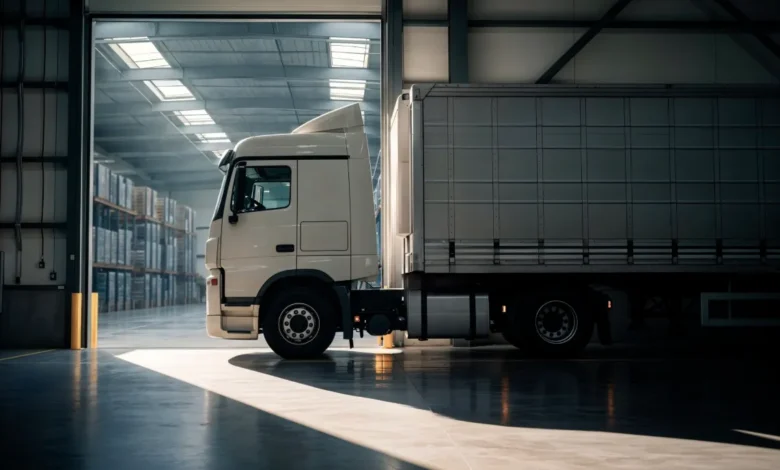The Strategic Advantage of Semi Trailer Rentals in Modern Business

In today’s competitive marketplace, successful companies recognize that flexibility drives profitability. Smart business leaders understand that every operational decision impacts their bottom line. The logistics sector exemplifies this reality perfectly.
Transportation costs represent a significant portion of operational expenses for most enterprises. Companies seeking to optimize their supply chain operations are discovering innovative solutions. One strategy gaining momentum involves leveraging rental equipment instead of purchasing assets outright.
The decision to rent semi trailer equipment offers compelling advantages for businesses across multiple industries. This approach allows companies to access premium transportation solutions without the financial burden of ownership.
Forward-thinking entrepreneurs are embracing this model to enhance their competitive positioning.
Understanding Semi Trailers and Their Business Applications
Semi trailers form the backbone of commercial transportation infrastructure. These large cargo containers attach to truck tractors to create complete hauling systems.
The trailer portion carries the freight while the tractor provides the power and steering.
Basic Components and Design
A standard semi trailer measures 53 feet in length and 8.5 feet in width. The design maximizes cargo capacity while maintaining road safety standards. Most trailers feature aluminum or steel construction for durability and weight optimization.
The trailer connects to the tractor through a fifth-wheel coupling system. This connection allows the tractor to pull and steer the entire combination. Air brake systems provide stopping power distributed between both vehicles.
Industry Applications
Manufacturing companies use semi trailers to transport raw materials and finished products. Retail chains depend on these vehicles to move inventory between distribution centers and stores. Construction firms utilize specialized trailers for heavy equipment transportation.
Food service operations require refrigerated trailers to maintain product quality during transport. Chemical companies need specialized containers for hazardous material handling. Each application demands specific trailer configurations and capabilities.
Capacity and Specifications
Standard dry van trailers accommodate up to 80,000 pounds of gross vehicle weight. The cargo area provides approximately 3,900 cubic feet of storage space. These dimensions handle most general freight transportation requirements efficiently.
Specialized trailers offer different capacities and features. Flatbed trailers support oversized cargo that exceeds standard dimensions. Tank trailers transport liquid materials in secure, sealed containers.
Financial Benefits of Semi Trailer Rentals
Rental agreements provide immediate access to transportation assets without substantial capital investment. This approach preserves cash flow for core business operations and growth initiatives.
Capital Preservation Strategies
Purchasing semi trailers requires significant upfront investment, often exceeding $150,000 per unit. Rental arrangements eliminate this capital requirement entirely. Companies can allocate saved funds toward revenue-generating activities instead.
This capital preservation strategy proves especially valuable for emerging businesses. For example, a business owner with a 688 credit score might find financing options limited or costly, making rental a smarter choice to preserve liquidity. Startups can access professional-grade transportation equipment without depleting their working capital reserves. Established companies benefit from improved balance sheet flexibility.
Predictable Operating Costs
Rental agreements provide fixed monthly payments that simplify budgeting processes. Companies know their transportation costs in advance, enabling more accurate financial planning. This predictability supports better business decision-making across all departments.
Variable ownership costs create budget uncertainty that complicates financial management. Maintenance expenses, insurance premiums, and depreciation rates fluctuate unpredictably. Rental agreements transfer these risks to the equipment provider.
Tax Advantages
Rental payments qualify as business expenses that reduce taxable income immediately. Ownership requires depreciation schedules that spread tax benefits over multiple years. The immediate expense recognition provides superior cash flow advantages.
Companies can deduct the full rental amount as operational expenses. This treatment typically provides better tax benefits than depreciation allowances on purchased equipment. Professional tax advisors can quantify the specific advantages for individual situations.
Operational Flexibility and Scalability
Modern business environments demand rapid adaptation to changing market conditions. Rental agreements provide the flexibility needed to respond quickly to opportunities and challenges.
Seasonal Demand Management
Many industries experience significant seasonal fluctuations in transportation needs. Retail companies require additional capacity during holiday shopping periods. Agricultural businesses need extra equipment during harvest seasons.
Rental agreements allow companies to scale their fleet size up or down as needed. This flexibility prevents underutilized assets during slow periods while ensuring adequate capacity during peak times. The result is optimized resource allocation throughout the year.
Geographic Expansion Support
Companies expanding into new markets need transportation assets in those locations. Purchasing equipment for unproven markets represents significant financial risk. Rental agreements provide market entry capabilities without long-term commitments.
If expansion efforts prove unsuccessful, companies can terminate rental agreements without asset disposal concerns. Successful expansions can continue with rental arrangements or transition to ownership as markets mature.
Equipment Variety Access
Different transportation tasks require specialized trailer configurations. Rental fleets offer access to diverse equipment types without purchasing multiple specialized units. Companies can select the optimal trailer for each specific application.
This variety includes refrigerated units, flatbeds, tank trailers, and specialized hauling equipment. Purchasing this range of equipment would require enormous capital investment. Rental arrangements provide access to all configurations as needed.
Maintenance and Support Advantages
Equipment ownership creates ongoing maintenance responsibilities that consume time and resources. Rental agreements typically include comprehensive maintenance coverage that eliminates these concerns.
Professional Maintenance Services
Rental companies employ certified technicians who specialize in semi trailer maintenance. These professionals understand equipment requirements and perform services according to manufacturer specifications. Regular maintenance schedules ensure optimal performance and reliability.
Company-owned fleets require internal maintenance capabilities or third-party service relationships. Building internal capacity demands facility investment and technical expertise development. Third-party services may not provide the same level of attention as rental company maintenance.
Emergency Support Coverage
Equipment failures create immediate operational disruptions that impact customer service and profitability. Rental companies provide emergency support services that minimize downtime. Replacement equipment is often available within hours of reported problems.
This support capability proves especially valuable for companies operating in remote locations. Rental company networks typically provide broader geographic coverage than individual company resources. The result is faster problem resolution and reduced business impact.
Technology Integration
Modern semi trailers incorporate advanced technology systems for tracking, monitoring, and optimization. Rental companies invest in the latest equipment to maintain competitive advantages. Renters benefit from accessing cutting-edge technology without additional investment.
These systems include GPS tracking, electronic logging devices, and cargo monitoring sensors. The technology provides valuable operational data that supports efficiency improvements. Companies benefit from these capabilities without technology investment or management responsibilities.
Risk Management and Insurance Benefits
Equipment ownership exposes companies to various risks including theft, damage, and liability concerns. Rental agreements transfer many of these risks to the equipment provider.
Comprehensive Insurance Coverage
Rental companies maintain insurance policies that protect their equipment investments. These policies typically provide broader coverage than individual company policies. Renters benefit from professional-level protection without managing complex insurance relationships.
The coverage includes physical damage protection, theft recovery, and liability coverage. Rental companies have experience managing insurance claims and recovery processes. This expertise ensures faster claim resolution and reduced business disruption.
Regulatory Compliance Support
Transportation regulations continue evolving at federal, state, and local levels. Rental companies monitor regulatory changes and ensure their equipment meets current requirements. Renters benefit from automatic compliance without tracking regulatory developments.
This support includes safety inspections, emission standards compliance, and operational requirement updates. Companies avoid penalties and operational disruptions caused by regulatory non-compliance. Professional management of these requirements reduces administrative overhead.
Asset Protection Strategies
Economic downturns and market changes can significantly impact equipment values. Rental agreements protect companies from asset depreciation risks. Equipment providers absorb value fluctuations while renters maintain operational capabilities.
This protection proves especially valuable during economic uncertainty. Companies can maintain transportation capabilities without worrying about asset value impacts on their financial statements. The result is improved financial stability during challenging periods.
Making the Strategic Decision
Semi trailer rentals represent a sophisticated business strategy that aligns transportation capabilities with financial objectives. Companies that embrace this approach often discover competitive advantages that drive long-term success.
The decision requires careful analysis of operational requirements, financial capabilities, and strategic objectives. However, the flexibility and financial benefits typically outweigh traditional ownership models for most business situations.
Smart business leaders recognize that success comes from focusing resources on core competencies while leveraging partnerships for supporting functions. Semi trailer rentals exemplify this principle by providing world-class transportation capabilities without the complexities of equipment ownership.
The transportation sector will continue evolving as technology advances and market conditions change. Rental partnerships position companies to adapt quickly while maintaining operational excellence and financial flexibility.




